Sept 11, 2024 – Guzangs was honored to be hosted at Marist College’s River Rooms for a dynamic panel discussion titled Alternative Realities: Modern and Contemporary African Fashion, a View from the Continent. The Marist Student Center with breathtaking views of the Hudson River, provided a perfect intimate backdrop for an evening of insightful conversation about African fashion and its rising influence on the global stage.
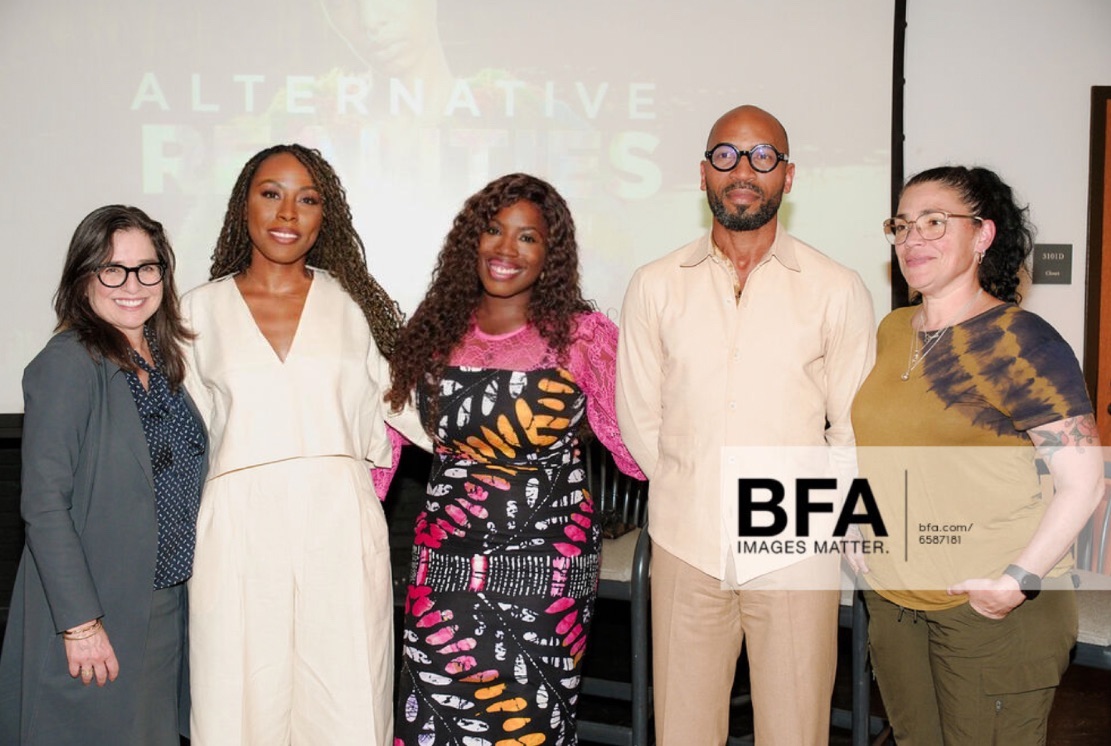
Moderated by Jacqueline Reich, Dean of Marist’s School of Communication and the Arts, the panel featured esteemed voices from the African fashion world: Idelle Taye, founder of Guzangs and a leading African fashion curator; Maliz Mahop, communications and partnerships expert; and Kelechi Odu, a celebrated Nigerian designer. Together, they offered compelling perspectives on Africa’s vibrant creative economy, the power of the diaspora, and the future of African fashion.
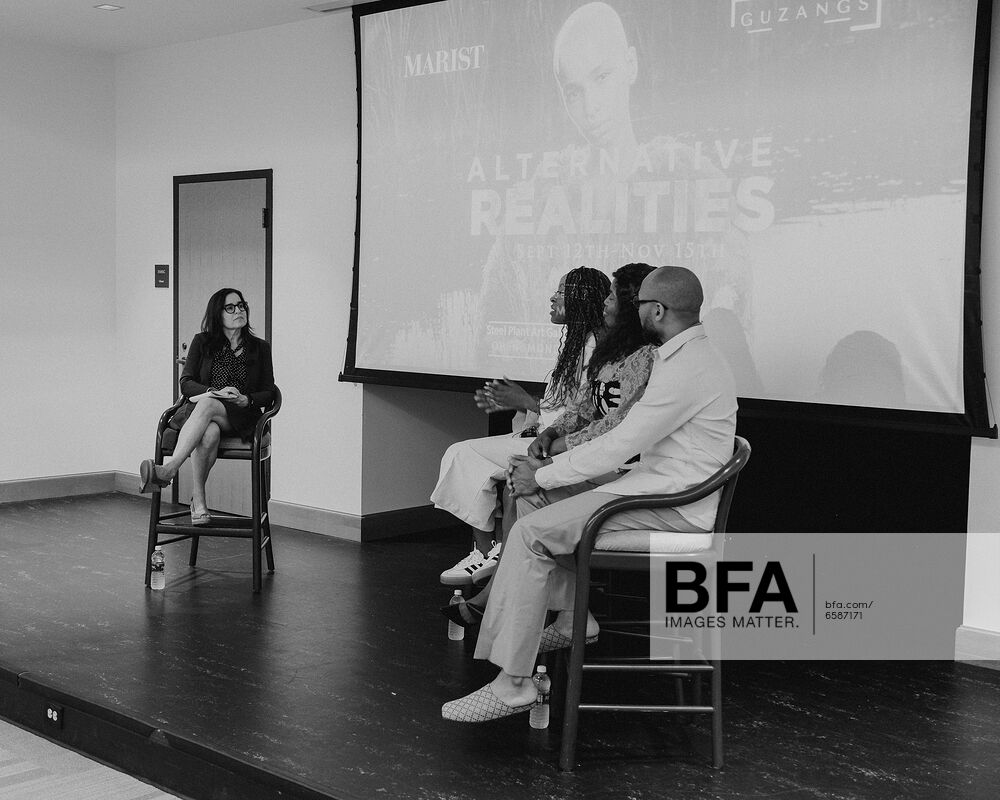
Jacqueline Reich set the stage for an engaging exploration of African fashion’s multifaceted narrative within both cultural and global contexts. Idelle Taye began the discussion with a profound reflection on the rich heritage of African textiles and craftsmanship. “African fashion is a story of resilience, creativity, and transformation. We are redefining global fashion with a narrative that is uniquely ours,” she shared, capturing the audience’s imagination with her vision for the industry’s future.
Idelle further elaborated on fashion’s pivotal role in Africa’s broader creative industry, stating, “Fashion is more than just clothing; it’s an intersectoral art form that weaves together our heritage, culture, and global storytelling.” She emphasized Africa’s innovative approach to sustainability, noting, “While sustainability is a global topic, Africa is leading the charge with many designers embracing slow fashion principles.”
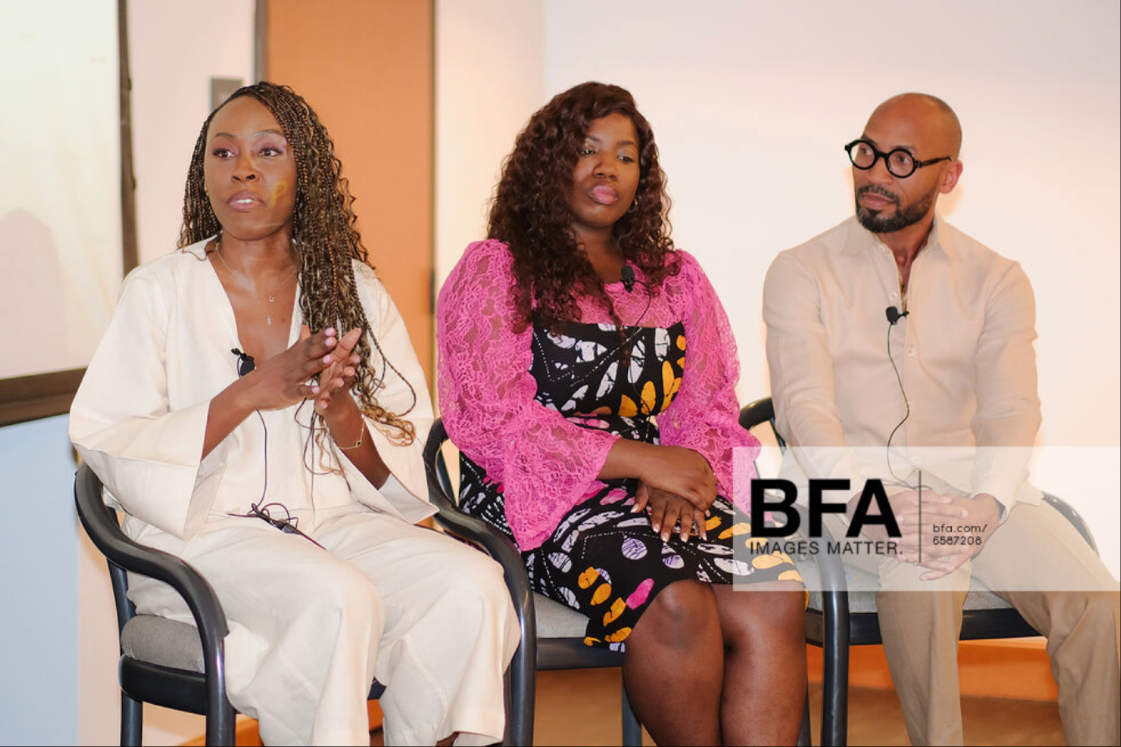 From L to R Idelle Taye, Maliz Mahop, Kelechi Odu | Images: BFA
From L to R Idelle Taye, Maliz Mahop, Kelechi Odu | Images: BFA
Highlighting Guzangs’ role, Idelle proudly shared, “Guzangs is dedicated to advancing African fashion by collaborating with designers who honor tradition while pushing the boundaries of innovation. We see ourselves as a bridge between African craftsmanship and the global fashion market, ensuring African designers receive the recognition they deserve.”
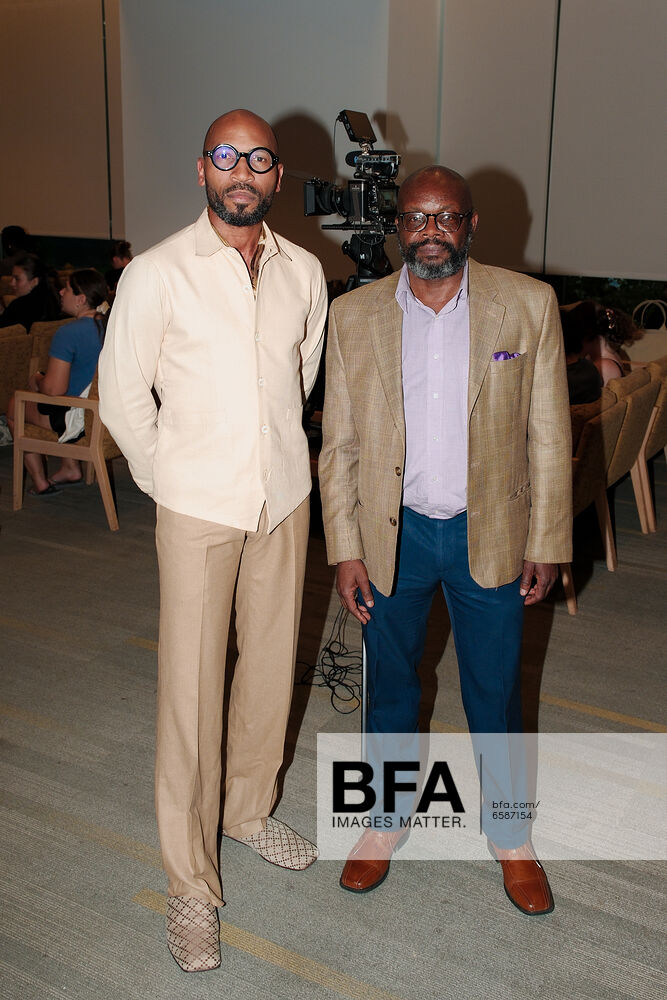
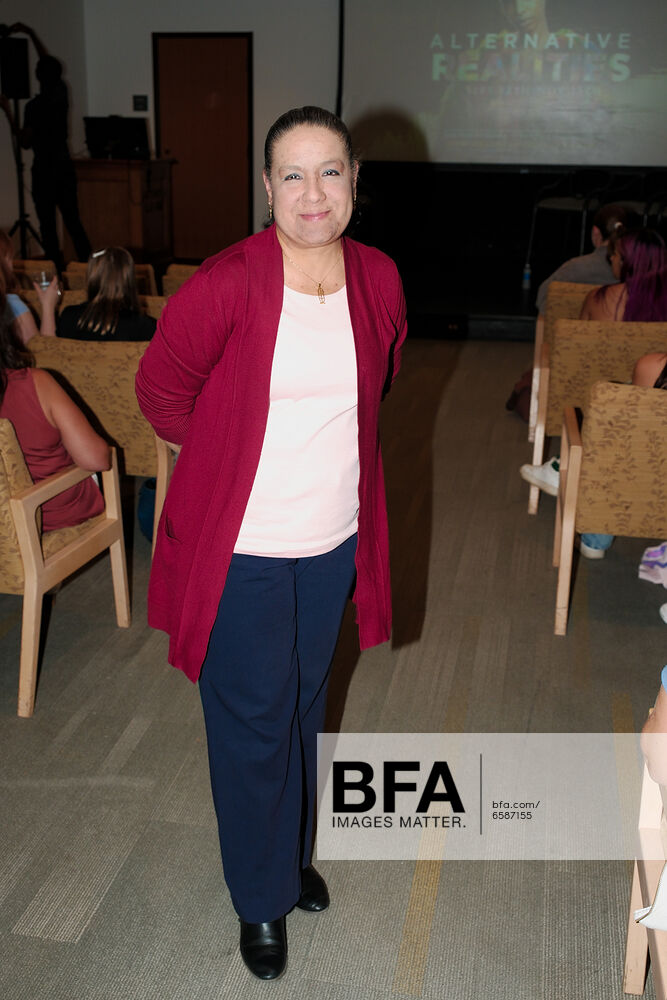
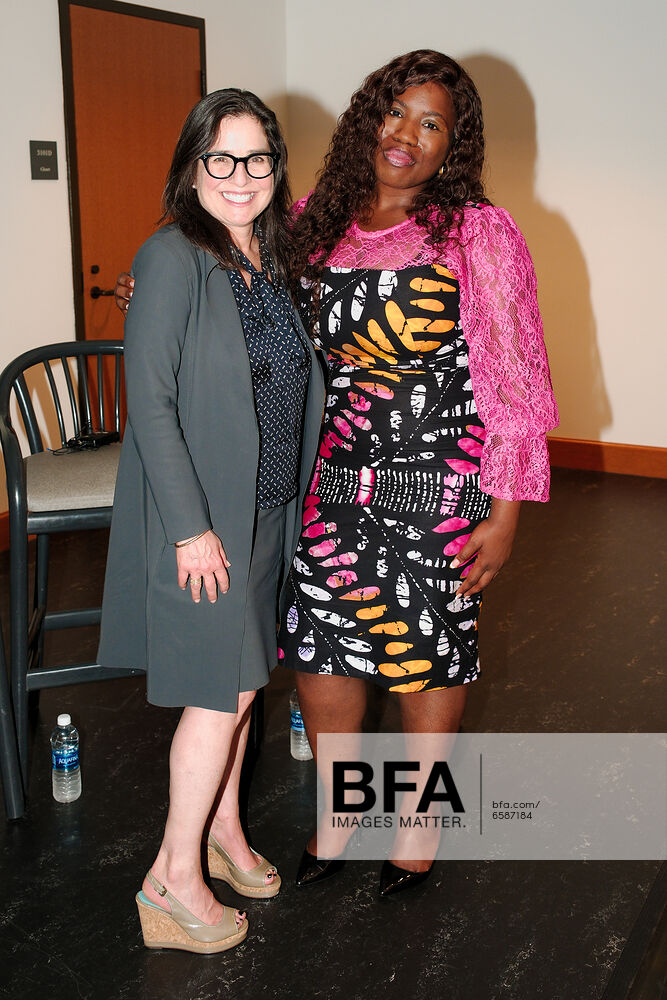
Regarding the Alternative Realities exhibition, Idelle remarked, “We aim to challenge stereotypes and present ‘alternative realities’ that showcase the innovation coming from Africa. This exhibition is about moving beyond conventional notions and highlighting the true essence of African design.”
Looking forward, Idelle expressed optimism about African fashion’s potential to lead in innovation and global influence, stating, “With the rise of sustainability and cultural appreciation, African fashion is poised to shape global trends and practices.”
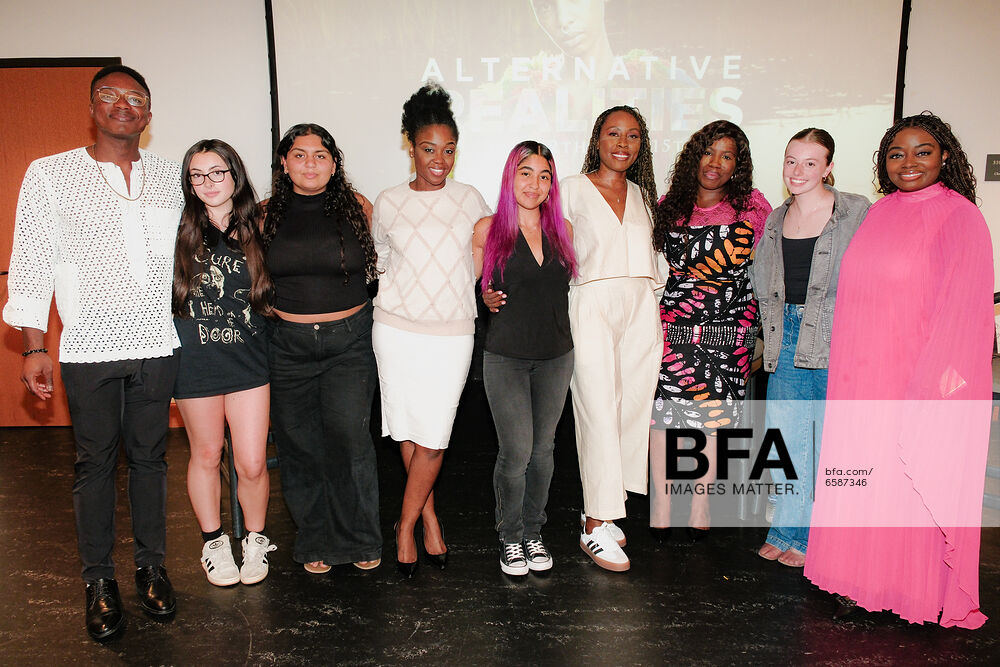
Maliz Mahop reflected on the African diaspora’s impact on global fashion perceptions, noting, “As Africans in the diaspora, we carry the essence of our culture with us. Through fashion, we connect with home and influence international trends.” She emphasized the significant contributions of the African fashion scene, especially in sustainability, while advocating for greater recognition on the global stage. “African fashion has been making substantial strides, particularly in sustainability, yet it deserves more credit,” Maliz stated. She also addressed the importance of proper credit in storytelling, saying, “Guzangs is committed to ensuring all contributors receive due recognition.”

From L to R Maliz Mahop, Idelle Taye, Mario Roman | Images: BFA
Kelechi Odu discussed the challenges faced by African designers, including limited resources and the need for robust infrastructure. “Interest in African fashion is growing, but we need to build systems that allow our talent to thrive,” Kelechi remarked. He also shared a personal insight, drawing a parallel between fashion and architecture. “Design is a form of civil service, solving problems for others,” he said, highlighting the intersection of creativity and practicality.

Students at event Images: BFA
He also addressed the topic of borrowed notions with a compelling analogy, emphasizing the importance of respectful re-contextualization. He noted that while borrowing elements from different cultures can be enriching, it must be done with a deep understanding and respect for their origins. “In essence, we should approach borrowing with respect and a clear grasp of its roots and significance. For instance, consider the kilt—widely associated with Scottish culture. However, its origins are rooted in English attempts to neutralize Scottish aristocracy. This example illustrates how cultural elements can be reinterpreted and adopted by different societies, transforming their significance over time.“
He continued, “Understanding the source and respecting its origins are crucial when integrating borrowed elements into new contexts. Authentic innovation arises from acknowledging these roots and building upon them meaningfully. That’s why we emphasize studying fashion history and costume design; it’s about understanding the origin and context to enhance our appreciation and innovation.”
Kelechi also underscored the importance of maintaining one’s core identity when building a brand or advancing a vision. “When creating or evolving a brand, stay true to your ethos and the message you want to convey. Authenticity resonates deeply and helps avoid missteps in cultural representation.”
Lastly, he touched upon the significance of specific textile manipulations in traditional design, inviting further discussion on personal favorites and their cultural relevance.
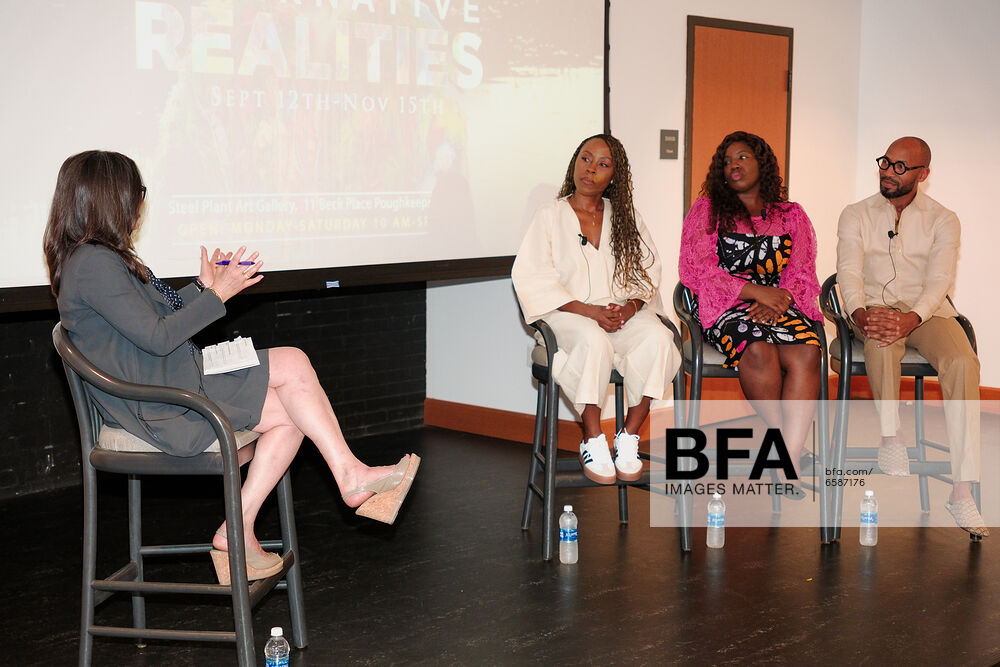
The discussion was enriched by an interactive Q&A session, with students, industry professionals, and cultural advocates posing thoughtful questions. Seth Oppong-Dwamena, a Marist student, inquired about Guzangs’ marketing approach. Idelle Taye explained that success was driven more by authenticity than by heavy marketing. “People are drawn to Guzangs because of our authenticity and the relatable stories we tell,” she explained. Kelechi Odu and Maliz Mahop echoed this sentiment, highlighting the brand’s visual presentation and Idelle’s unique vision as key factors in Guzangs’ success. Another student asked about how the designers are chosen, “Do you consider whether a designer uses craft machines or local manufacturing when choosing who to collaborate with?” Idelle responded with insight into her selection process, saying, “I’m very intentional about evaluating how designers support and impact the environment. I prioritize working with those who are not only committed to sustainable practices but also excel in storytelling about their heritage. It’s crucial for me to partner with designers who reflect both environmental responsibility and a deep connection to cultural narratives.”
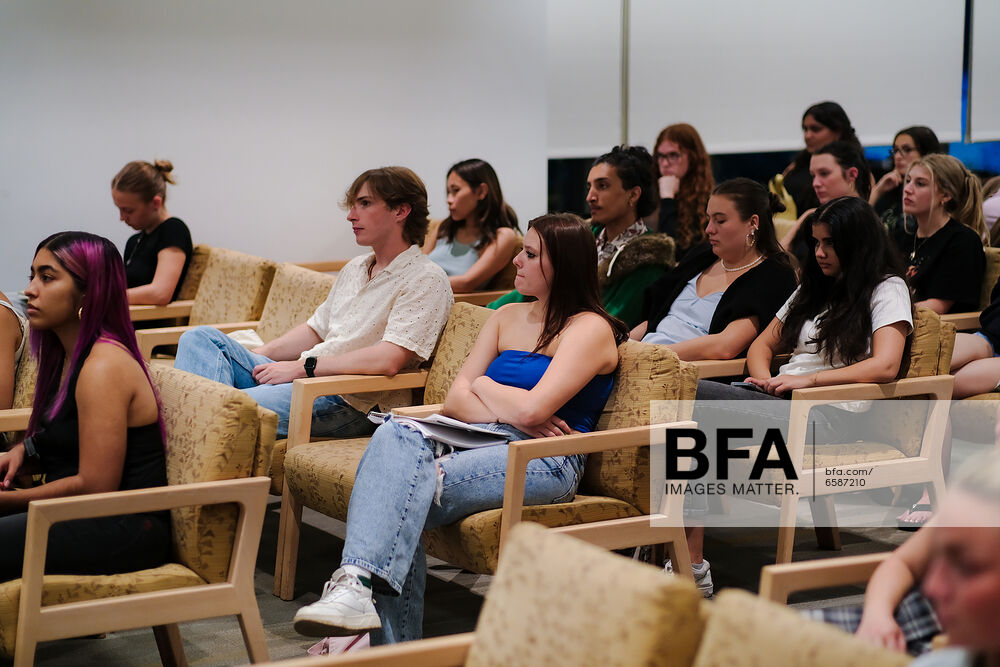
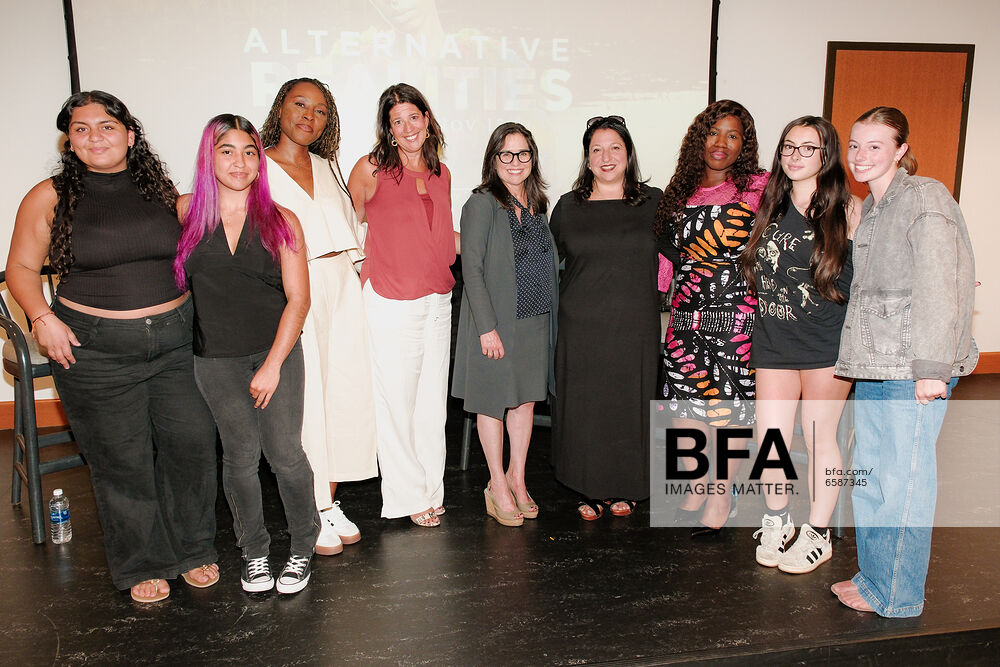
Images: BFA
During the Q&A session, Stephania Baldek posed an insightful question: “ I was wondering if there’s a specific textile manipulation or design that’s done in a more traditional sense, or maybe even more modernized, that you guys have as one of your favorites.” Idelle responded enthusiastically, highlighting HerTunba from Nigeria: “We can talk about HerTunba, from Nigeria. She works with local women in a small community who have been practicing a specific weaving technique for centuries. It’s a very niche skill, passed down through generations, and only those within the community are permitted to be weavers.”
Maliz added more context stating: “What’s particularly fascinating about HerTunba’s work is how the brand has evolved. At first, the weavers were paid a standard rate, but as the brand grew, they began earning significantly more—up to three times what they were initially paid. This shift has had a transformative effect on the community, especially for the younger generation, who had previously seen weaving as an unprofitable trade. Thanks to HerTunba’s efforts, many younger people are now inspired to join the weaving community, ensuring the longevity of this traditional craft.”
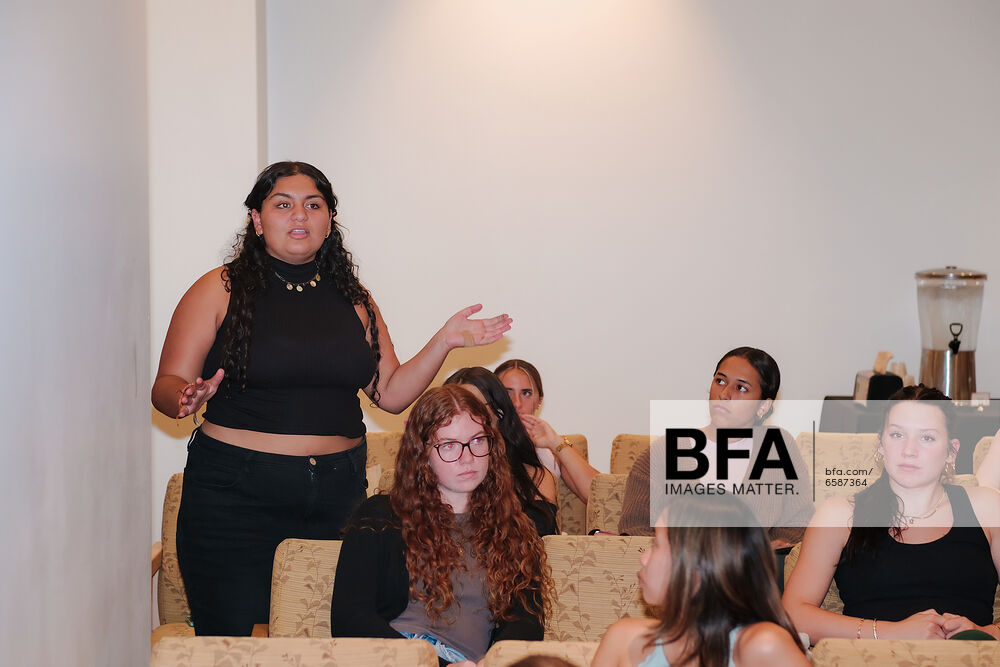
Stephanie Bandek | Images: BFA
As the panel concluded, Idelle Taye left the audience with a hopeful message: “The future of African fashion is not just about reclaiming our narrative; it’s about shaping the global narrative.”
Guest feedback following the event provided valuable insights into its impact. Fashion lecturer Mario Roman, when asked to highlight a key theme, immediately emphasized storytelling. He noted that the collections on display not only conveyed the designers’ personal journeys but also captured the broader narrative of African fashion’s evolution.
Similarly, Valdez Tita, a guest visiting from Texas, shared why he believes Guzangs is a brand to watch. He noted, “The concept of authenticity was a recurring theme today, and I believe Guzangs has a unique ability to embody and promote that message. It was evident in the way the speakers thoughtfully engaged with the questions, addressing even the more challenging topics, such as financial obstacles and the appropriation of African fashion, with honesty and courage. These insights deeply resonated with me, but even more so, I left with a strong sense that Guzangs is a platform worth investing in. It’s an urgent call to action for all of us to support and contribute to the growth of this remarkable movement—it was truly an inspiring experience.”
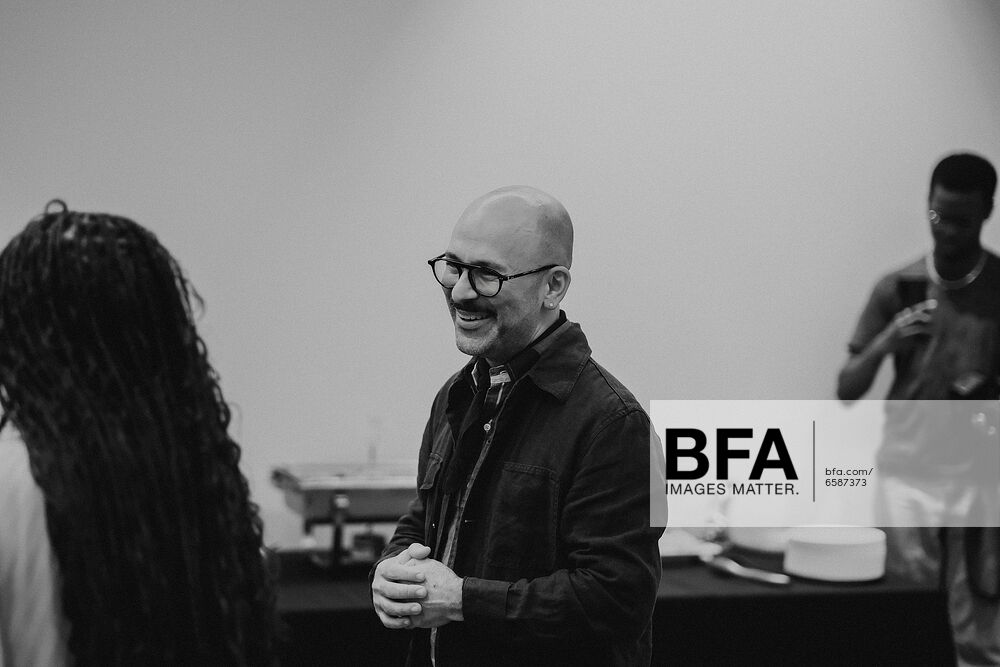
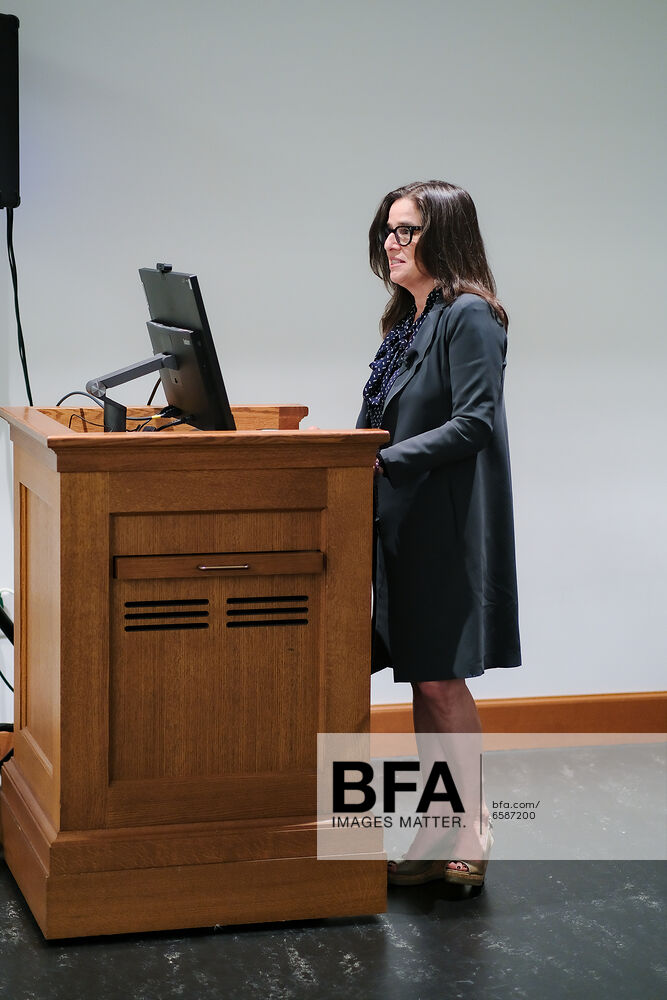
This panel discussion set a compelling prelude for the Alternative Realities exhibition, a collaborative effort between Marist College and Guzangs, running from September 12 to November 15, 2024 at the Steel Plant Gallery. The exhibition celebrates African fashion’s innovation and cultural significance, showcasing the work of 14 acclaimed designers from across the continent.
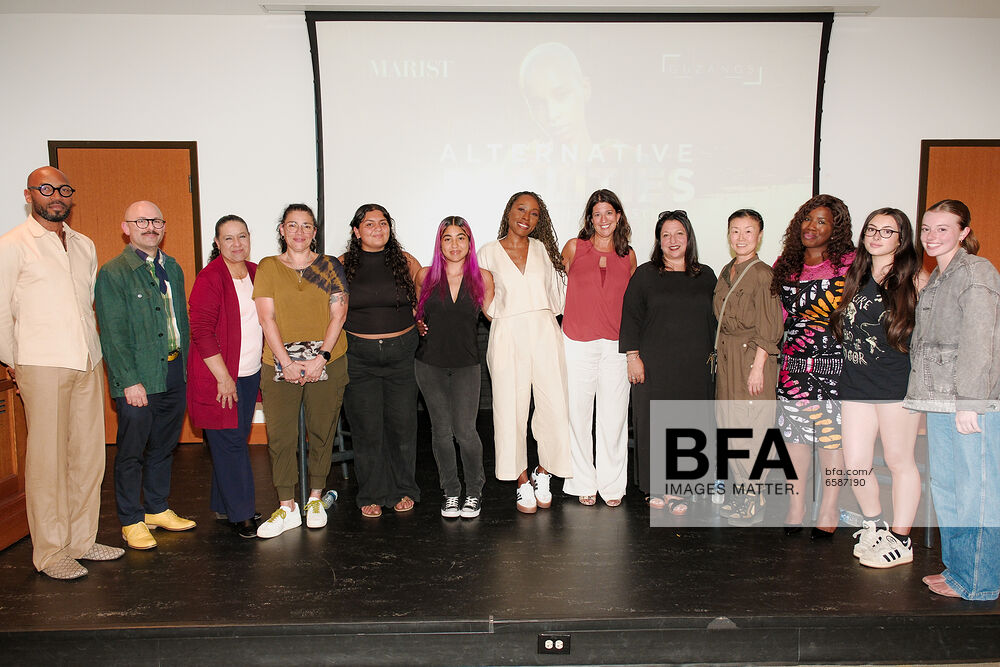
From L to R Kelechi Odu, Mario Roman, Sonia Roy, Idelle Taye, Jacqueline Reich, Maliz Mahop | Images: BFA
Notable guests in attendance included Edward Antonio, PhD, Vice President of Diversity, Equity & Inclusion, as well as various industry leaders and fashion enthusiasts.
With its powerful dialogue and visionary insights, the Alternative Realities panel not only celebrated African creativity but also marked a bold step forward in the global fashion narrative—one where Africa proudly takes its place at the forefront.
ABOUT THE GUZANGS X MARIST EVENT
POUGHKEEPSIE, N.Y. – Marist College and Guzangs, a premier global platform spotlighting African art and fashion, collaborated to present a special exhibit at the College’s Steel Plant: “Alternative Realities: Modern and Contemporary African Fashion, a View from the Continent.” Running from September 12 to November 15, this highly anticipated exhibit celebrated the innovation, diversity, and cultural significance of African fashion. Curated by Guzangs, the showcase featured 14 acclaimed designers from across Africa, highlighting a diverse range of styles and influences from Egypt to South Africa. This collaboration underscored the continent’s rich cultural heritage and forward-thinking design ethos, blending traditional and contemporary techniques. The exhibit, directed by Marist Fashion gallery director Sonia Roy, sought to address the limitations of past perspectives while promoting diverse viewpoints, aligning with Guzangs’ mission. Jacqueline Reich, Dean of Marist’s School of Communication and the Arts, expressed enthusiasm for the exhibit, noting its unique opportunity to engage students and the community with global perspectives. Visitors explored a spectrum of design categories, including material-driven, recycled, and technology-integrated creations, through interactive displays and immersive experiences. Guzangs founder Idelle Taye, alongside co-curator Kelechi Odu, a multidisciplinary artist and designer and Maliz Mahop, communication and partnerships lead, played a crucial role in highlighting the diverse talent emerging from Africa. The exhibit, which integrates technology, sounds, and music, aims to elevate African fashion on a global scale, reflecting the depth and variety of African creativity. For more information on the exhibit, visit Guzangs’ website.
Tags: #AlternativeRealities2024, #AfricanFashionForward, #FashionFromTheContinent, #GuzangsXMarist, #FutureOfAfricanFashion, #AfricanCreativityUnveiled, #IdelleTaye, #KelechiOdu, #MalizMahop, #JacquelineRich, #CulturalFashionRevolution, #DiasporaDesigns, #FashionInnovation, #SustainableStyleAfrica, #ModernAfricanDesign, #GlobalFashionNarrative, #FashionPanelTalks, #MaristFashionEvent, #AfricanFashionDiaspora